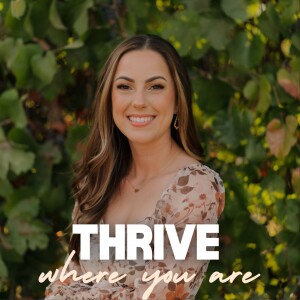
Tuesday Mar 04, 2025
Prescription for Tragedy: Kim Witczak's Fight for SSRI Transparency
In this episode, I interview Kim Witczak, a national drug safety advocate whose advocacy was ignited by the tragic loss of her husband due to an undisclosed side effect of an antidepressant. The conversation delves into the over prescription of SSRIs, the lack of informed consent, and the serious risks associated with these medications. Kim shares her personal journey from a grieving spouse to a passionate advocate for drug safety, highlighting the challenges she faced in pushing for greater transparency and accountability in the pharmaceutical industry. The discussion also touches on the ongoing mental health crisis and the implications of antidepressant use in society. In this conversation, Kim and I delve into the complexities of mental health treatment, particularly focusing on the reliance of SSRIs and the need for a more holistic approach. We discuss the challenges faced by patients in emergency departments, the implications of prescribing medications to children, and the societal pressures that contribute to the cycle of medication dependency. The dialogue emphasizes the importance of advocacy, personal empowerment, and the necessity of addressing root causes rather than merely treating symptoms.
Takeaways
- Kim became an advocate after losing her husband Woody.
- Woody was prescribed Zoloft for insomnia without proper informed consent.
- There were no warnings about the risks of antidepressants at the time.
- The FDA often dismisses anecdotal evidence in favor of clinical trials.
- Many doctors trust the FDA and pharmaceutical companies blindly.
- The black box warning was a significant achievement for drug safety.
- The mental health crisis is worsening despite increased antidepressant use.
- Informed consent is crucial for patients on psychotropic medications.
- The conversation around antidepressants needs to be more transparent.
- The reliance on psychotropic medications can perpetuate cycles of mental health issues.
- A holistic approach to mental health includes nutrition, exercise, and spiritual health.
- SSRIs may have links to violence that warrant further investigation.
- Children can be prescribed medications without parental consent, raising ethical concerns.
- Advocacy and personal empowerment are crucial in the fight for better mental health care.
- The pharmaceutical industry often prioritizes profit over patient well-being.
- Mental health campaigns may inadvertently glamorize mental illness.
- Conversations about mental health need to include uncomfortable truths.
- Every individual has the power to make a difference in mental health advocacy.
Learn more from Kim Witczak:
Instagram: @kim_witczak
No comments yet. Be the first to say something!